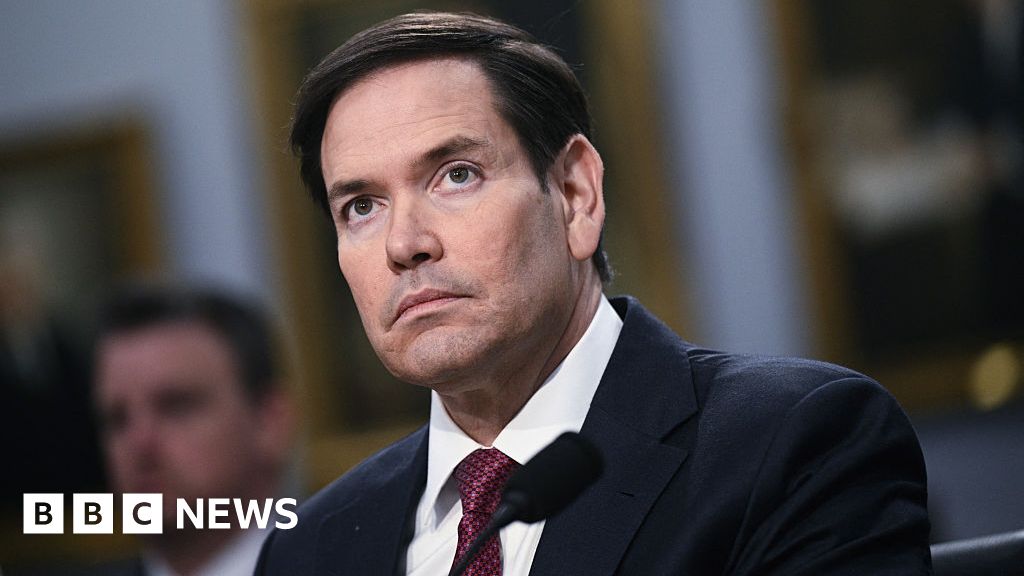ARTICLE AD BOX
Wearing a black "Make America Great Again" hat and dark sunglasses, Elon Musk - the multi-billionaire tasked by Donald Trump with taking a metaphorical chainsaw to the federal government - received a rock-star welcome as he took the stage at a right-wing gathering on Thursday.
He even had a literal chainsaw.
As the crowd of several thousand cheered, Argentine President Javier Milei, also a favourite at the annual Cpac event, emerged from backstage. He handed Musk a shiny chainsaw with "viva la Libertad carajo! – Spanish for "Long live liberty, damn it!"- emblasoned on the blade.
Musk waved the power tool high, shouting: "This is the chainsaw for bureaucracy! Chainsaw!"
It was a remarkable moment on a day typified by less animated speeches about the dangers of big government and the accomplishments of Trump's first month back in the White House. It demonstrated how Musk is the only conservative who approaches Trump's ability to energise a crowd.
Outside of Washington, however, there are signs that Musk's chainsaw approach to federal government – which includes shuttering agencies, defunding programmes and mass civil service layoffs – may be cutting too close to the bone.
At about the same time as Musk was celebrating the work of his so-called "Department of Government Efficiency" at the event near Washington DC, Republican Congressman Rich McCormick was holding a town hall forum for his constituents.
Many in Roswell, Georgia, were angry about the impact of the Musk-inspired cuts and let the congressman know it.
"Congress controls the budget, not the president," a woman said. "You are doing a disservice to set that down and not stand up for us."
McCormick's response was drowned out by jeers.
"I understand trying to do more with less – that's reasonable," another constituent said. "What's not reasonable is taking this chainsaw approach."
- What is Doge and why is Musk cutting so many jobs?
- Trump administration tries to rehire bird flu officials
Earlier this month, Pew Research found that 54% of Americans have an unfavourable view of Musk, including 37% that responded "very unfavourable".
Only 23% of Americans told Reuters-Ipsos pollsters this week that the president has the right to fire "any federal employee who disagrees with the president". Fifty-eight percent said they were concerned that popular government programmes, like Social Security retirement benefits for the elderly and subsidised student loans – could be affected.
Just over half of Americans in a CNN poll said Trump had gone "too far" in exercising his presidential power.
At an earlier event at Cpac on Thursday, Speaker of the House Mike Johnson praised Musk and his team.
"They are exposing this massive fraud, waste and abuse that we have not been able to uncover because the deep state has hidden it from us," he said.
Many Republicans have agreed with this sentiment, even if it means ceding congressional power over government spending to the president. Congressional conservatives have been trying to downsize the federal government for decades with limited effectiveness – and now Musk and Trump are delivering, albeit through a sweeping expansion of executive power.
North Carolina Senator Thom Tillis told CBS News he believed Doge's approach was necessary because Republicans had failed to get legitimate answers from bureaucrats about how to make government more efficient.
"And the way to force people to justify investments on exceptions is to shut everything down," Tillis said. "I know it's disruptive, but I think they need to have the capacity to bring things back online that make sense."
That may change, however, if Trump's poll numbers – which have dipped slightly recently – continue to decline and if Republican legislators are challenged by constituents at town hall meetings or have their offices flooded with angry calls.
Members of Congress across the US have begun stepping forward to defend federal programmes – including funding for academic research, agriculture, veterans services and national parks – that have been impacted by Musk's "Department of Government Efficiency" actions.
Senator Katie Britt of Alabama called for a "smart, targeted approach" to cuts that could affect health studies conducted by the University of Alabama. Alaska Senator Lisa Murkowski complained on social media that many of the proposed layoffs "will do more harm than good".
"I share the administration's goal of reducing the size of the federal government," she wrote on X, "but this approach is bringing confusion, anxiety and now trauma to our civil servants."
The Trump administration has already walked back some of its announced layoffs in key sectors – including Department of Energy employees who handle nuclear weapons security, Department of Agriculture teams tasked with containing the recent outbreak of bird flu, and workers in a programme that monitors the health of first responders and survivors of the 11 September World Trade Center attack.
"I think many of these firings are indiscriminate," said Susan Collins, a Republican senator from Maine. "The fact that workers were let go who are working on avian flu, and the fact that workers have also been fired who are responsible for nuclear safety, shows that we need a far more careful approach."
At his appearance last week at the White House, Musk acknowledged that his team might make mistakes in its eagerness to slash government spending – "but we will act quickly to correct any mistakes," he promised.
That may be cold comfort for Americans adversely affected by the Doge chainsaw, however. And it could come at a political price. History has shown that even when mistakes are fixed, voters often remember these kind of missteps the next time they head to the polls.

 3 months ago
25
3 months ago
25








 English (US) ·
English (US) ·